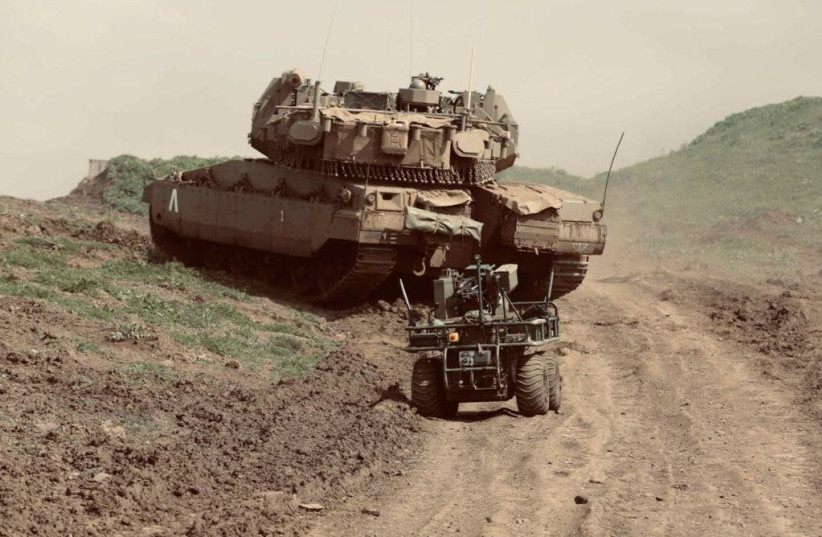The IDF revealed its artificial-intelligence (AI) war data “factory” and strategy on Tuesday as part of Tel Aviv University’s Blavatnik Virtual AI Week.
Although the military has been using AI for some time, including during the May 2021 Gaza war, a new strategy for AI was approved by IDF Chief of Staff Lt.-Gen. Aviv Kohavi a few weeks ago, said Brig.-Gen. Aviad Dagan, director of the IDF’s Digital Transformation Administration.
“Data and AI can actually win wars... not only arms, physical jets and submarines,” he said.
“The speed at which we can create a new weapon is totally different from creating a physical weapon,” he added.
“It is dramatically more flexible and adaptive than any kind of AI network,” Dagan said, including the long delays and resources needed for purchasing an F-35 and most other new weapons for troops.

A major recent advancement by the IDF has been digital networking in the cloud between all forces, including headquarters, frontline command centers and troops in the field, but the military is starting a new digital advancement beyond the cloud, he said.
There still will be a cloud network of interactions between headquarters and frontline units, but the military will now improve with “edge-data architecture that will enable an edge local course for speed and cloud course for completeness,” Dagan said.
This essentially means the military will be building mini-clouds, or networks, for each of its arms and sometimes smaller subdivisions so they can process and receive data even faster than in the current network, he said.
For example, a wide variety of data points could put together sensory detection of an enemy, evaluate who the enemy was, check the various IDF options within range to respond, analyze how much fuel different drones or other units have remaining and then quickly dispatch the most ideal targeting order, Dagan said.
The new AI capabilities could be of massive importance in any potential future war with Hezbollah in Lebanon, where the IDF has already developed a list of thousands of targets, he said.
